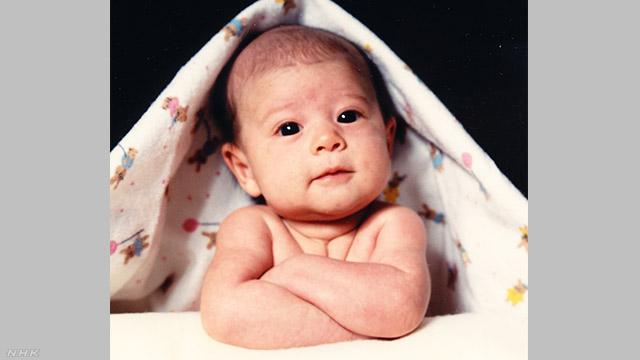Mioko Takahashi was like any other girl. The only things that set her apart were her upbringing and roots. She was born in Canada in 1989, to a Canadian father and a Japanese mother. Her parents got divorced and when she was 4 years old, Mioko moved with her mother Noriko to Japan.

During elementary school in Japan, Mioko was called "alien" and told to "go back to Canada." Despite this, she grew to be a caring girl with a strong sense of justice. She would sit down with her friends whenever they were feeling down, offering words of encouragement. She also took pride in her Canadian roots.

The serious bullying began when Mioko entered a private junior high school in Aichi Prefecture. It's not known when exactly, or why, the harassment started. Some students say it was after she intervened when her classmate was being picked on. Others say it was after she said something in response to a teacher's sexist comment. But others say it was down to her appearance. It may have been a combination of all these factors.
Her textbooks and notebooks were covered in taunts like "you suck" and "die". She would often find heaps of trash under her desk. Sometimes, when she returned to the classroom after break, her desk would have been moved outside. She even saw classmates throwing slippers at a drawing of her on the blackboard.
Mioko started refusing to go to school, saying she was sick. And when she did go, she would often return in tears.
In her first year of junior high school, she found her shoes covered in thumbtacks. She showed them to her homeroom teacher, but was told, "There is no bully in my class, you're imagining things."

Mioko moved to another school for the second year of junior high. Here she wasn't bullied but the experienced from the year before seemed to have had long-lasting effects. She said she felt like she couldn't be in the classroom because she feared being bullied again.
She was diagnosed with post-traumatic stress disorder, or PTSD, resulting from her experience.
Late one night February that year, Mioko suddenly got out of bed and told her mother, "I'm not Mioko. I'm a person who tells Mioko about herself."
That "person" continued to appear after that night, telling Noriko what was on her daughter's mind. The "person" would start sobbing when she talked about Mioko's experiences of being bullied.
Mioko started losing confidence. She had previously been sure of herself and her looks. But now she called herself ugly and was no longer proud of her Canadian roots.

She experienced hyperventilation fits and tried to slash her wrist with a box-cutter several times. She began undergoing therapy and transferred to a private combined junior and senior high school, which had many foreign students and Japanese children who had lived overseas. She started attending the high school division of the institution.
During her first year of high school, Mioko took part in a speech contest with a piece called "The Fight Against Myself", on her experience being bullied.
"I'm now fighting myself. That's because I was bullied when I was a first year junior high student three years ago."
The piece seemed to imply that she was stepping forward in a positive mindset. "I have never described in words my experience. But I will now note it down with courage."
Mioko wrote that the bullies treated her as a "garbage can" into which they let out their stress. She said she could not think about anything, her heart went numb, and she was at a loss as to why she had to live. She added that the period she was bullied felt much longer than a year.
She also wrote about the friends she had made in high school who tried to understand her experience and that she looked forward to when she would be able to smile with them, truly content.
"In my long, long tunnel, I may have spotted a small, small exit from which light comes in."

On August 18 of her second year in high school, Mioko sent a worrying text to her friend.
"Everyone told me to die. I took a drug because I was in pain."
Some of her friends immediately called. When she picked up, she was already groggy and stopped talking.
Later that morning, Mioko jumped to her death from the balcony of her eighth floor apartment. She was 16 years old.
She left a will written in red on a table.
"I love you, Mom. I love everyone. But I'm tired. Let me fulfill my last wish. Thank you for being my friends. I really love you all. But I'm in pain."

Mioko's mother filed a lawsuit against her daughter's junior high school.
A district court ruled that Mioko had committed suicide due to the bullying. But a high court dismissed any link, instead ruling that her suicide was the result of mental stress stemming from her relations with high school friends.

Her mother thinks Mioko was bullied because of her roots.
"Mioko stood out as she was half Canadian and half Japanese. She might have been seen as a nuisance because she didn't mince words. This may have been part of the reason why her friends thought it was OK to bully her. In Japan, people tend to avoid creating ripples, letting trouble pass as if nothing happened, and see opposing views as disruptive. Mioko may have bullied because of these tendencies."
She adds, "I have yet to come to terms with what happened to Mioko."
All these years later, Noriko still can't get over how her daughter's life was cut tragically short.

